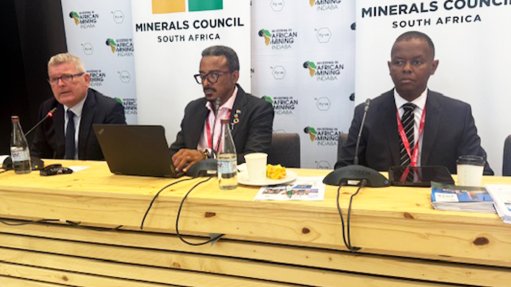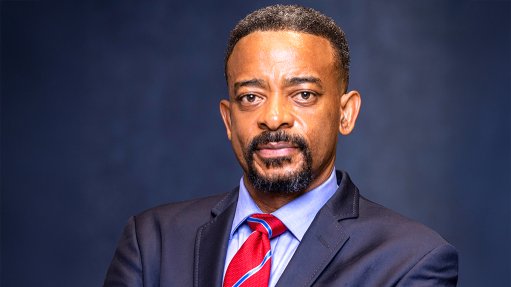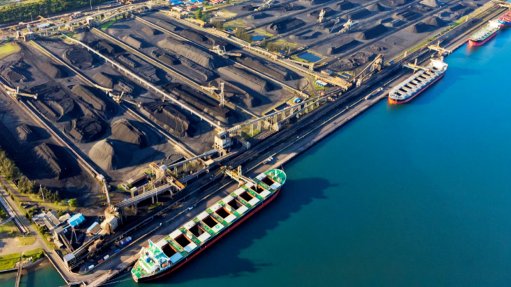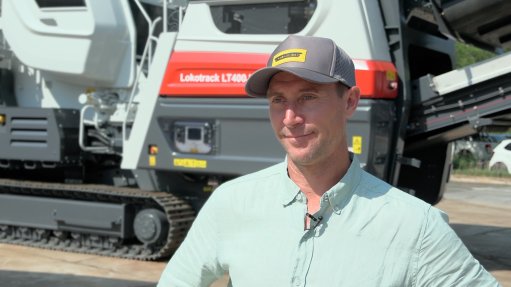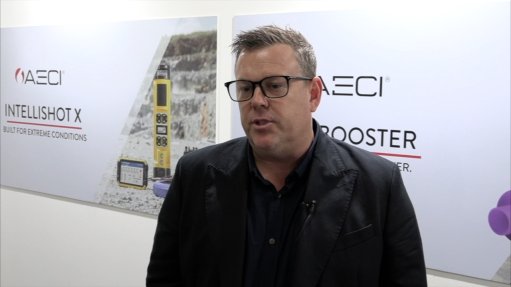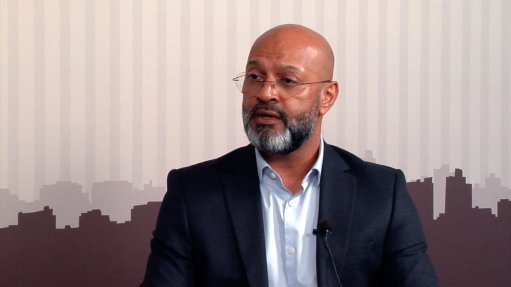Youth, regional integration hold the key to new economic era

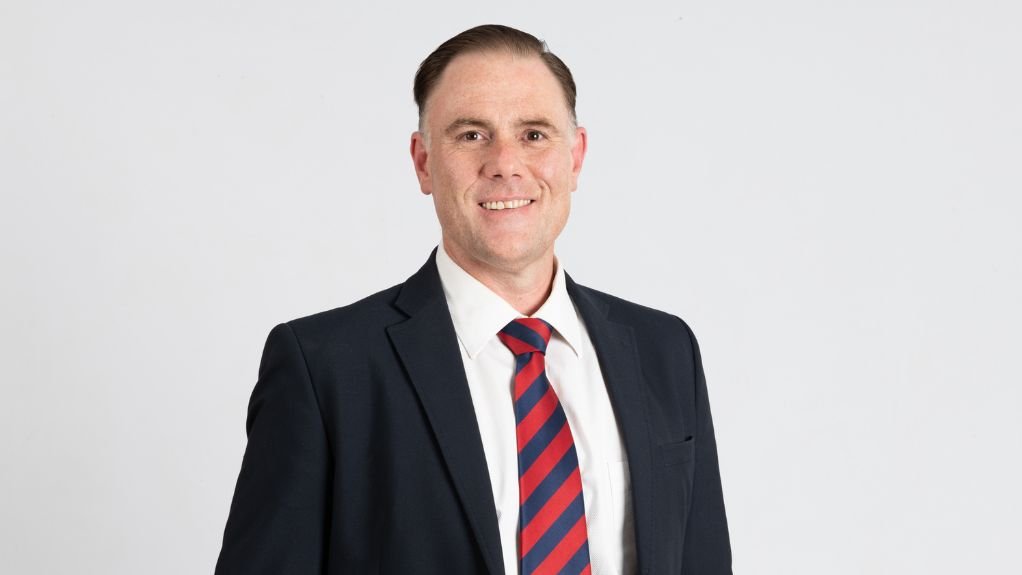
FRANK BLACKMORE With an average age of 19.2 years in 2024 and 40% of the population under 15, Africa has one of the youngest and fastest-growing populations globally
Africa’s rapidly expanding and youthful population is ready to transform the continent’s investment landscape, says professional services firm KPMG South Africa lead economist Frank Blackmore.
Demographic growth, combined with regional integration through the African Continental Free Trade Area (AfCFTA), is setting the stage for long-term expansion across key sectors, provided that policy, infrastructure and governance challenges are effectively addressed.
Africa’s population dynamics are a major driver of opportunity, he adds.
“With an average age of 19.2 years in 2024 and 40% of the population under 15, Africa has one of the youngest and fastest-growing populations globally.”
Blackmore says this demographic composition “presents enormous potential” for innovation, workforce expansion and consumer spending, provided that governments create an enabling environment through education, healthcare, safety, infrastructure development and foreign direct investment.
Africa’s economic potential is closely linked to its demographic life cycle. As the continent’s young population matures, demand patterns will evolve – from education and basic consumer goods to employment, housing, financial services, healthcare and leisure.
“Taking a life-cycle approach to investment helps identify where the greatest returns will emerge over time.”
Blackmore suggests that regional trade integration will be equally important in ensuring that Africa can capitalise on its demographic advantage. The AfCFTA, which aims to reduce tariffs and streamline trade across 54 countries, is a critical mechanism for retaining value within the continent while boosting competitiveness and industrialisation.
“Trade is beneficial to the countries that take part in it…. By creating a larger, unified market, the agreement enables producers to benefit from economies of scale and encourages the free movement of labour and capital – both essential for growth.”
Market Fragmentation Challenges
Africa’s market fragmentation remains a challenge, as only four African countries have populations exceeding 100-million, while 22 have fewer than ten-million.
Blackmore says integrating these smaller markets into regional blocs could help achieve economies of scale and attract investment into value-added manufacturing and services, particularly in agriculture, energy, infrastructure and digital industries.
Investment potential, he continues, spans a broad range of sectors. Agriculture and agribusiness are vital for food security and export earnings, while mining and quarrying will continue to underpin resource supply and trade revenues.
“Construction must accelerate to close infrastructure backlogs and meet growing urban demand for housing, public facilities and transport networks.”
The rollout of sustainable energy systems offers an opportunity to Africa to leapfrog older and more expensive technologies, supporting industrialisation while addressing environmental goals, he adds.
Further, as digital connectivity expands, fintech, e-commerce and creative industries are also emerging as powerful engines of growth across the continent.
Despite these opportunities, Blackmore warns that the challenges of doing business in Africa are substantial, citing geopolitical risks, corruption, inconsistent governance and weak infrastructure as recurring obstacles to growth.
“Africa is a continent of 54 countries, each with its own business regulations, cost structures and tax systems. These differences increase the cost of doing business and deter investment.”
However, he believes that deeper economic cooperation and policy harmonisation can help overcome these barriers.
“The AfCFTA, if implemented effectively, will play a central role in this process by aligning trade, tax and regulatory frameworks, making it easier for investors to view Africa as a few regional markets, and ultimately as a single continental economy.”
Public–private partnerships will also be crucial in closing the infrastructure gap. Blackmore says regional financing models can help share risk and maximise returns, particularly in power, transport and water projects. Regional power pools, for example, already demonstrate how shared infrastructure investment can yield mutual benefits, and similar models could be applied to other forms of public infrastructure.
KPMG believes that building an African clearing and settlement system to facilitate cross-border trade in local currencies would further strengthen financial integration.
He adds that Africa’s success will, ultimately, depend on how effectively its leaders harness demographic growth, implement the AfCFTA and foster private-sector participation.
“If managed well, these factors could transform Africa from a resource-based economy into one driven by industrialisation, digital innovation and human capital. Africa has the people, the resources and the potential. The challenge now is to put the right systems and partnerships in place to turn that potential into sustainable, inclusive growth,” he concludes.
Article Enquiry
Email Article
Save Article
Feedback
To advertise email advertising@creamermedia.co.za or click here
Press Office
Announcements
What's On
Subscribe to improve your user experience...
Option 1 (equivalent of R125 a month):
Receive a weekly copy of Creamer Media's Engineering News & Mining Weekly magazine
(print copy for those in South Africa and e-magazine for those outside of South Africa)
Receive daily email newsletters
Access to full search results
Access archive of magazine back copies
Access to Projects in Progress
Access to ONE Research Report of your choice in PDF format
Option 2 (equivalent of R375 a month):
All benefits from Option 1
PLUS
Access to Creamer Media's Research Channel Africa for ALL Research Reports, in PDF format, on various industrial and mining sectors
including Electricity; Water; Energy Transition; Hydrogen; Roads, Rail and Ports; Coal; Gold; Platinum; Battery Metals; etc.
Already a subscriber?
Forgotten your password?
Receive weekly copy of Creamer Media's Engineering News & Mining Weekly magazine (print copy for those in South Africa and e-magazine for those outside of South Africa)
➕
Recieve daily email newsletters
➕
Access to full search results
➕
Access archive of magazine back copies
➕
Access to Projects in Progress
➕
Access to ONE Research Report of your choice in PDF format
RESEARCH CHANNEL AFRICA
R4500 (equivalent of R375 a month)
SUBSCRIBEAll benefits from Option 1
➕
Access to Creamer Media's Research Channel Africa for ALL Research Reports on various industrial and mining sectors, in PDF format, including on:
Electricity
➕
Water
➕
Energy Transition
➕
Hydrogen
➕
Roads, Rail and Ports
➕
Coal
➕
Gold
➕
Platinum
➕
Battery Metals
➕
etc.
Receive all benefits from Option 1 or Option 2 delivered to numerous people at your company
➕
Multiple User names and Passwords for simultaneous log-ins
➕
Intranet integration access to all in your organisation









